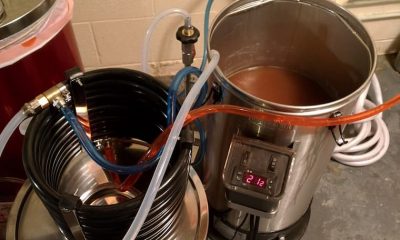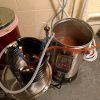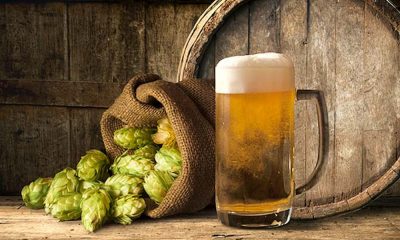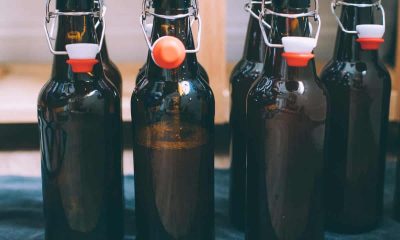Food & Drink
Everything You Need to Know About Homebrewing
Picture this – you’ve just gotten home after a long day at work, sweating profusely during the sizzling mid-summer afternoon (or any afternoon, for that matter) and there’s only one thing you’re looking forward to – kicking your feet up and enjoying a cold beer. Except, when you open your fridge, much to your dismay, there is none. Zero. Zilch. And you actually thought you were fully stocked. Sheesh. The day can’t get any worse than that, can it?
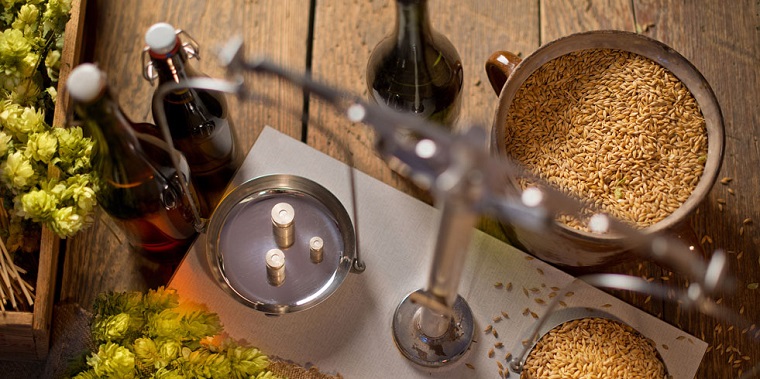
Source: pinterest.com
Now in that scenario, dragging your feet to the store to buy beer seems like a harrowing task so you just decide to give up. We’ve got the perfect solution for that. Imagine if you were to brew your own beer, tailor it specifically to your liking and have a decent number of bottles stored away and available to you at any time. Just think about it for a second. Doesn’t that sound like heaven to you? Because it sure does to us.
Homebrewing as the Perfect Hobby
Out of all the hobbies known to man, we think it’s safe to say that brewing your own alcoholic beverages is the coolest one. You’ll have a constant supply of beer at the comfort of your own home. Plus, you’ll save money because it’s a cheaper alternative to store-bought alcohol, assuming you don’t buy the cheapest ones available. So what are you waiting for? Embark on your homebrewing journey today. To help you out, we’ve prepared a list of things to consider when making beer at home.
What Do You Need to Get Started?
There are three main ways to brew beer: extract, partial mash and all-grain. Which one should you go for you ask? Whether you are a beginner or an expert homebrewer, we recommend getting a beer extract kit since it’s the easiest way to brew beer. Instead of doing all the legwork of mashing loads of grain, save on time and effort and get yourself a handy beer extract. It’ll absolutely revolutionise the way you consume beer.
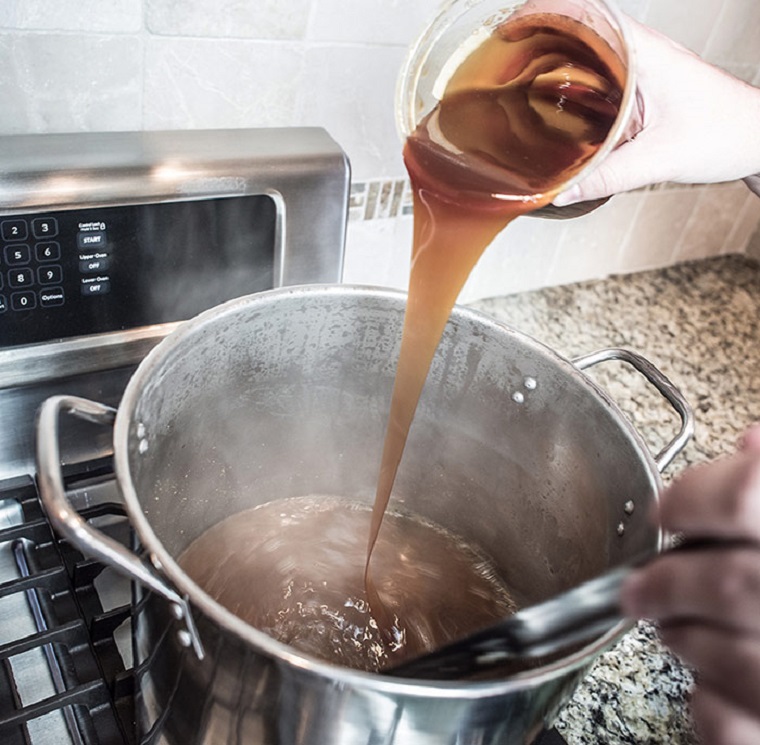
Source: homebrewersassociation.org
The main advantage of using such a brewing method is its accessibility and convenience. No need to invest in expensive equipment for mashing grain as extract brewing kits contain high-quality grain malt and hops expertly prepared for you to enjoy. This also leaves little room for error, seeing as brewing kits take many factors into consideration beforehand, such as pH levels and temperature. You won’t have to worry about any of that. It’s super easy.
You can choose from a wide range of brewing kit recipes, all of which are produced and tested by professionals. Feel free to experiment with flavours and aromas, you might find something you like. The whispering wheat extract with its distinctive fruity aura and the India pale ale (IPA) with its moderate bitterness and subtle fruity taste are quite popular these days, if you’re not sure where to start.
The kits come with detailed instructions on how to prepare the product. You’ll need a heat source and a boiling pot or kettle. When added to the boil, the extract syrup provides the sugar necessary for fermentation. Once you transfer the concoction into a fermenter using appropriate tubing, you’ll use a hydrometer to measure the alcohol content and sugar density. Make sure you sanitize all equipment before use to prevent contamination.
Start crafting your own beer and watch your fascination with the art imminently grow. Knowing what it takes to make good quality beverages and being aware of all the work that goes into it will make your more appreciative of everything that goes into making a nice cold one.

Source: happyhourcity.com
Beer Characteristics Study Guide
Now that you’re familiar with the basic ingredients and equipment, let’s talk about beer characteristics. There are four basic features to take into account when talking about beer: appearance, aroma, flavour and alcohol content. By appropriately identifying these features, you’ll be able to pick a beer according to your preferences.
1. Appearance
When discussing appearance, you’re mainly thinking of colour and clarity. The factors that influence the colour include barley, boil time and brewing specifics. Colour and clarity help us determine whether or not beer has been brewed in the right way. Keep in mind that dark beers aren’t always heavy and caramel beers aren’t necessarily sweet. These are common misconceptions.
2. Aroma
There’s a multitude of different aromas you can expect from beer. One sniff and you’ll notice the smell of alcohol, fruit and floral aromas, to name a few. There’s no right or wrong here, it all comes down to personal preference. If the beer smells like vinegar, however, you might want to throw it away.
3. Flavour
Just like aromas, there’s a wide range of flavours for you to pick and choose from. The way beer feels in your mouth is very important. Is it sweet, sour or bitter? Is it dry or does it feel refreshing? Once again it all comes down to personal taste, what’s good for you may not be good for the next person and so on.
4. Alcohol Content
Like in every alcoholic drink, you’re able to see the percentage of alcohol content on the packaging. If you’re looking for a stronger drink, opt for a larger percentage and vice versa.
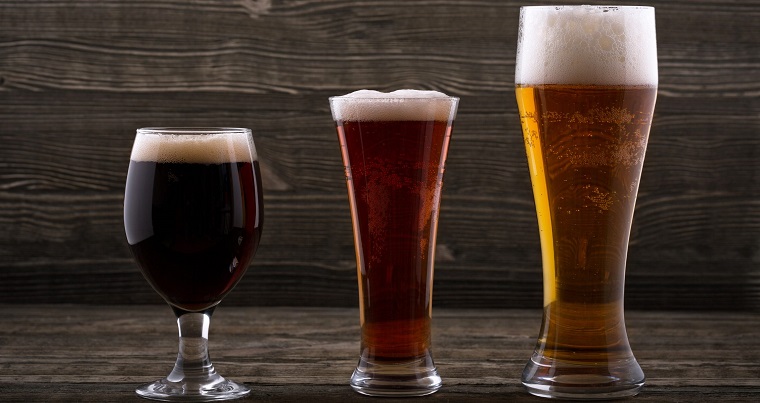
Source: generationiron.com
How Is Drinking Beer Beneficial for Your Health?
Drinking beer actually has quite a few advantages when it comes to your health. It contains more nutrients, such as antioxidants, proteins and vitamins, than other alcoholic beverages. It helps improve bone health and reduce the risk of osteoporosis. Research suggests that beer also reduces the risk of cardiovascular diseases and complications and helps protect your heart. Additionally, it improves memory retention and cognitive functions, lowering the likelihood of developing dementia or Alzheimer’s disease.
Since beer is low in calories, carbohydrates and fat, it helps regulate cholesterol levels in the bloodstream, which greatly improves your overall health. Contrary to popular belief, beer doesn’t give you a beer belly but eating junk food does. And last but not least, it causes less of a hangover when compared to other alcoholic drinks. No one wants to deal with a hangover the next day. All the more reason to crack open a beer right? You don’t need to tell us twice.


